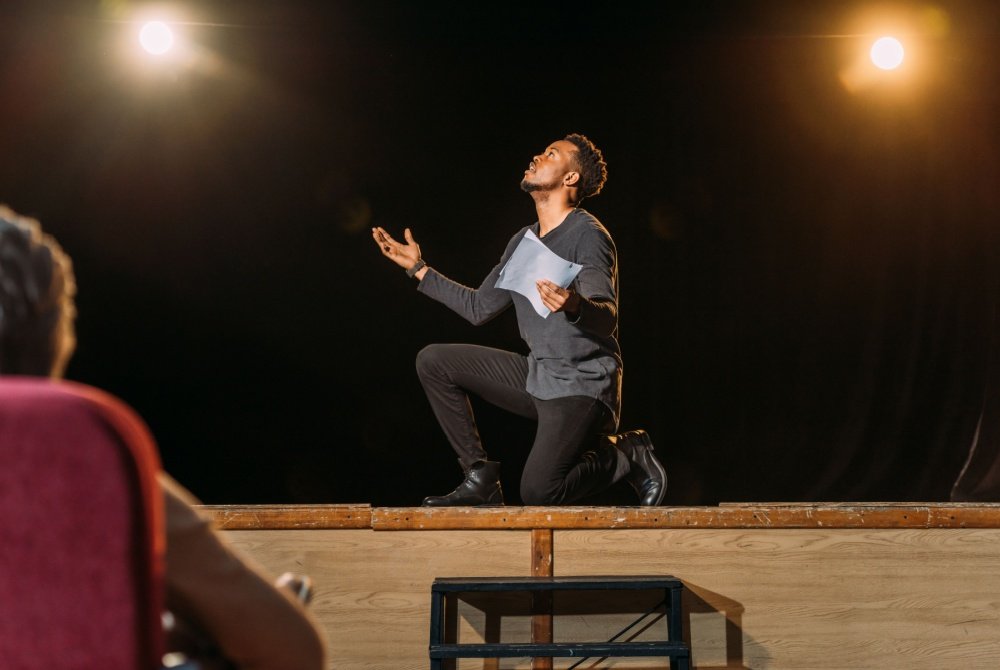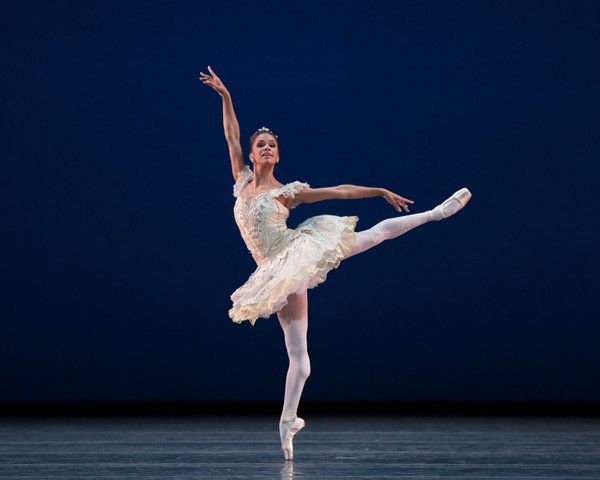
As state legislators take an ax to arts funding across the U.S., regional donors are stepping up to fill the gaps. For a rather extreme example of this phenomenon, let’s turn to a gift out of Florida, a state where legislators practically eliminated arts funding entirely in the 2018-2019 fiscal year.
Nancy and David Bilheimer recently gave Clearwater’s Ruth Eckerd Hall $2.5 million to expand and endow arts education programs at the hall’s Marcia P. Hoffman School of the Arts, which serves over 45,000 students through more than 81,000 hours of arts experiences each year. “Nancy and I understand the importance of arts education for children and we are thrilled to be a part of the Marcia P. Hoffman School of the Arts,” David said. “Education and access are vital for our community.”
Originally from southern New Jersey, David was a mechanical engineer while Nancy studied math. In 1991, the couple established the Munch Bilheimer Foundation. Nancy, in an interview with the Tampa Bay Times, said the couple had accumulated money from both her and David’s sides of the family. Nancy’s father, Peter Howard Munch, founded the Trim Manufacturing Company in the Bronx. A noted philanthropist, Peter supported the Autism Society and the Helen Keller Services.
Given his engineering background, David told the Tampa Bay Times that he and Nancy’s giving initially focused on STEM-related programs. However, they expanded their philanthropic efforts to include the arts after hearing about a lack of arts funding in schools. “If we say they’re not teaching science and they say we’re not teaching art, what are they teaching?” David said.
The Ruth Eckerd Hall gift is part of a $35 million “Expanding the Experience” fundraising campaign that also calls for the renovation of the hall itself. In 2017, renovations began with the roadway improvements, including new lanes for traffic, drop-off and departure, new signage, landscaping and lighting. In 2018, the hall broke ground on a new grand lobby, among other improvements.
“A Kick to the Groin”
In addition to Ruth Eckerd Hall, the Bilheimers have provided support to the nearby Dunein Fine Arts Center since 2005. In December 2017, the couple made a $2 million donation to the center. It was an alarmingly prescient gift. A few months later, the state slashed funding for Florida’s arts and cultural programs by 90 percent, from $25 million to $2.6 million to be split among 489 organizations. Florida quickly dropped to 48th among all states in terms of arts and culture funding.
Aware that the budget would trigger pushback across the state’s arts community, governor Rick Scott’s office provided a letter listing a series of unanticipated expenses that contributed to the cuts. These expenses included addressing damage from Hurricane Irma ($1.7 billion), opioid abuse ($65 million), and the Parkland school shootings ($375 million). “It was a perfect storm this year,” said Sherron Long, a former Hillsborough County drama teacher who heads the Florida Cultural Alliance.
Zev Buffman, the then-CEO of Ruth Eckerd Hall, called the cuts “a kick to the groin” and laid out the grim reality facing the state’s beleaguered nonprofit arts organizations: “In the nonprofit business, raising money is like breathing,” Buffman said. “If you stop breathing, you die. If you stop raising money, you are dead.”
Nor could arts organizations based in Tampa, Dunein or Clearwater expect much assistance from county officials. As the Tampa Bay Times’ Andrew Meacham writes, “public money does not flow as freely” in Pinellas County, which defunded its arts council in 2010 in a round of budget cuts.
Other donors tried to lessen the blow. The Gobioff Foundation and the Vinik Family Foundation created and seeded the Tampa Bay Arts Bridge Fund with $100,000 each. The fund aimed to raise $2.5 million for 32 organizations in Hillsborough and Pinellas counties, where the gap in state support grants was $3.8 million for 2018-19. It wasn’t always smooth sailing. The fund delayed plans to distribute the money in October of 2018 after reaching only 8 percent of its goal.
“You have to commend” donors “for trying to assist these organizations in these crisis times,” said Meredith Collier, who heads the Arts Council of Hillsborough County. “But it’s not a fix going forward.”
A Tale of Two Floridas
Collier is correct—to an extent. Roughly 300 miles south of Tampa, Miami has transformed itself into an international arts mecca, thanks to an infusion of private dollars.
The Knight Foundation has invested at least $165 million in the city since 2005, including a December 2018 commitment totaling $37 million. Jorge M. Pérez, the Argentine-born Giving Pledge signee has given tens of millions to the Pérez Art Museum Miami. “This is just peanuts compared to what I’ll be giving to the museum,” Perez said in 2016 after a $10 million cash gift and artwork donation valued at $5 million. And last December, fund manager Bruce Berkowitz’s Berkowitz Contemporary Foundation announced plans to break ground in 2020 on its own 45,000-square-foot public art space.
Yet not all of the city’s arts organizations are taking time to savor their mojitos. A Knight-commissioned report by the research firm TD suggests that the mountains of cash pouring into the city has created a top-heavy funding ecosystem. “The arts in Miami rely on a limited number of funders, and many of the largest arts organizations operate with little to no operating reserves,” it claimed, prompting the New York Times’ Brett Sokol to ask, “Is Miami a case of too much, too soon: too many arts organizations, too few private funders to keep them all afloat?”
The Knight Foundation seems to agree. Its most recent round of $37 million in grants reflected a shift toward shoring up organizations for the inevitable downturn, and enabling them to purchase their own buildings in the face of encroaching gentrification. That said, the funder has no plans to abandon the city’s anchor institutions. In mid-July, Mellon gave the PAMM a $1 million gift for the institution’s newly formed Caribbean Cultural Institute.
While Miami’s arts ecosystem is far from perfect, I suspect many Tampa, Dunein and Clearwater-based arts organizations would happily trade places with their Miami-based brethren. Remember: Knight’s one-time $37 million investment in Miami-based organizations is $12 million more than what legislators allocated to hundreds of organizations across the state in its 2017-2018 budget.
Luckily, this story ends on a somewhat positive note. Earlier this year, Florida legislators voted to restore most of the cuts for 2019. The budget provided $21.25 million to the arts, far more than the $5 million governor Ron DeSantis had earmarked, but much less than the $61.6 million the state’s arts leaders requested. In June, DeSantis signed the budget allocating $21.25 million in arts and cultural grants—an improvement, to be sure, but still a significant drop from 2014-2015’s level of funding, which stood just north of $40 million.
DeSantis also vetoed about a third of the $3.8 million legislators approved for cultural grants outside the standard categories. For example, DeSantis put the kibosh on a $500,000 request that House Rules Chairman Chris Sprowls sought for repairs and expansion of the Ruth Eckerd Hall. DeSantis’ logic for not funding the hall’s renovation underscores the growing importance of funders like the Bilheimers.
“I graduated high school at Ruth Eckerd, they can do that, they have a foundation, the state does not need to do that,” DeSantis said.











.jpeg)






.jpg)




.jpg)






.jpg)